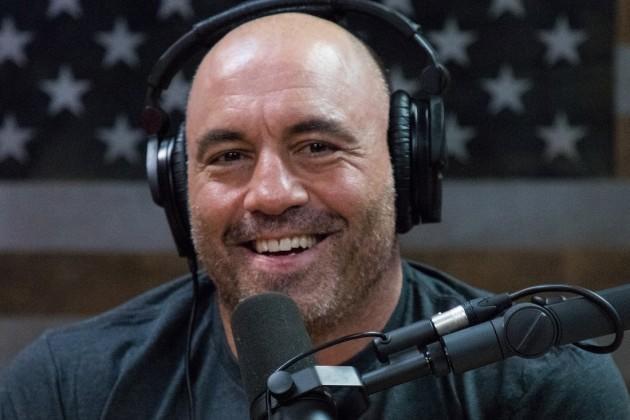
How big of a liability vs. an asset will Joe Rogan prove to be for Spotify? A new survey sheds some light on which way the wind might blow given the spate of #DeleteSpotify and #CancelSpotify hashtags that blew up on social media in recent days — although similar past customer backlashes have resulted in minimal damage.
Among Spotify users, 19% said they have already canceled their service — or plan to — over the Rogan uproar, according to a Feb. 1 consumer poll conducted by Forrester Research.
More from Variety
The study also found that 54% of those who use Spotify have no intention of canceling their subscription, while 18.5% said they would considering canceling only if more artists who they like pull their music from the platform. About 8.5% said they thought about canceling their subscription but that Spotify’s features were too important to them.
The protest kicked off last week when Neil Young demanded Spotify remove his music because of what he identified as COVID misinformation in some of Rogan’s podcast episodes. Since then, he’s been joined by Joni Mitchell, India Arie, Roxane Gay, Mary Trump, and David Crosby, Stephen Stills and Graham Nash.
If anywhere around 19% of Spotify users were to abandon the streamer, that would obviously have a huge impact. However, it’s important to keep in mind that surveys are a gauge of self-reported behavior, and the way this Forrester poll was worded let respondents say they intend to cancel — even if, ultimately, they don’t.
SEE ALSO: Spotify Removes 70 Episodes of ‘Joe Rogan Experience’; Podcast Host Apologizes for Using N-Word
It goes without saying that people don’t always do what they say they’re going to do. Indeed, Forrester conducted a survey in September 2021 that found only 32% of U.S. adults say they would actually follow through with boycotting a brand. Key reasons consumers cited were that it’s hard to find a replacement (33%) were because the brand is embedded in their lives (32%).
“Consumer boycotts build quickly, but they lose steam fast,” Forrester analysts Mike Proulx and Kelsey Chickering wrote in detailing the Spotify poll results. While “cancel culture is loud, for most brands, it’s just noise.”
There’s another caveat with Forrester’s Spotify/Rogan study: It had a relatively small size, polling 657 online consumers in the U.S., U.K. and Canada, of which about one-third were Spotify users. That implies a sizeable margin of error given Spotify’s massive user base of 406 million worldwide overall (including 180 million paid subscribers) at the end of 2021. In addition, the researchers pointed out that the data is not weighted to be representative of total country populations.
The broader point is that when companies in the past have taken hits from public outrage over something, most have rebounded — or have barely seen any effect at all.
Recall, for example, the firestorm over “Cuties,” the controversial film on Netflix that depicted underage characters in sexualized situations. After the drama debuted on the service in early September 2020 the hashtag #CancelNetflix trended online. Despite a temporary uptick in cancellations, the Netflix churn rate in the U.S. died down within a week, third-party data showed. Netflix was in the hot seat again last fall over a Dave Chappelle stand-up special in which he made anti-trans comments, but there are no signs that the Chappelle dispute by itself has prompted a significant customer defection.
Spotify’s subscriber and user gains in Q4 2021 were at the high end of its previous guidance, but that was before the Rogan backlash began. For Q1, the company expects to continue to grow — execs projected 418 million total users (+12 million) and 183 subscribers (+3 million). But Spotify declined to provide full-year 2022 guidance, and the stock dropped following the earnings report amid a volatile broader market (including, notably, the massive plunge Thursday in the stock of Meta, Facebook’s parent). Spotify stock recovered a bit Friday, closing up 9%.
Spotify CEO Daniel Ek told analysts on the Feb. 2 earnings call that “it’s too early to know what the impact may be” from the Rogan issue. “And usually when we’ve had controversies in the past, those are measured in months and not days. But I feel good about where we are in relation to that, and obviously, top-line trends looks very healthy still.”
Ek admitted that Spotify was “probably late” in publishing the company’s content policies, which it finally did this past Sunday. “We should have done it earlier, and that’s on me,” he said on the call.
In trying to calm the nerves of investors who may have been rattled by the Rogan situation, as well as try to placate artists and users angry about “The Joe Rogan Experience,” Ek had on Sunday announced Spotify’s plans to display a content-advisory notice next to COVID-19 content that will link to messaging by scientists, physicians and public organizations like the CDC and WHO.
Rogan, too, addressed the accusations of misinformation on his hugely popular podcast in a statement Sunday (Jan. 30), looking to provide his side of the story and ease tensions.
“I’m not trying to promote misinformation,” he said, vowing to “try to balance things out” in the future. He apologized to Spotify, as well as to Neil Young and Joni Mitchell, but also asserted that lots of people have “a distorted perception of what I do, maybe based on sound bites or based on headlines of articles that are disparaging.”
Best of Variety
Sign up for Variety’s Newsletter. For the latest news, follow us on Facebook, Twitter, and Instagram.




